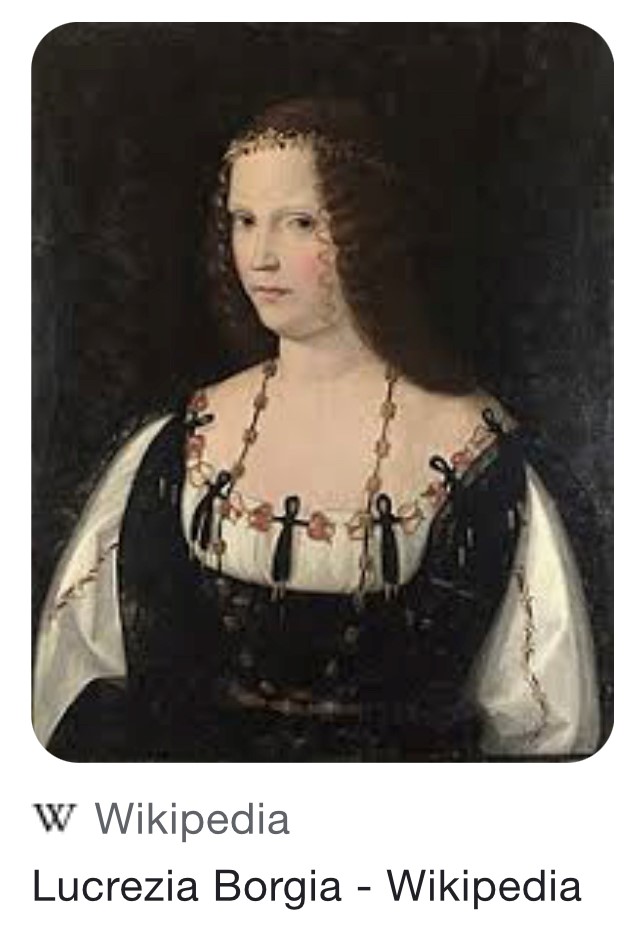Lucretia Borgia
In previous blog posts, I have discussed Miss Mawer’s love of using imagined fairies and mythical creatures as a way for teaching movement to little children. However, when those same children grew into adults, they, like all young people, rebelled. Out went the fairies, and in came the murderers! One of Irene Mawer’s favourite students, Joyce Ruscoe, gave a very fine piece of miming – portraying Lucretia Borgia,with her reputation of getting her own way – through the use of poison!
The performance on the School premises in the Philbeach Hall was reviewed by Ruby Ginner’s brother, a famous painter in his own right, Charles Ginner. Writing in the Ginner-Mawer School magazine, in 1933, he said “…I will mention Miss Joyce Ruscoe in her ‘I love the old way best, The simple way of poison’ which impressed me as a very fine piece of miming. I feel I must render tribute to Miss Ruscoe for her facial expressions. Miss Ruscoe can hardly be said to resemble the Lucretia Borgia of one’s imagination, or even of Gabriel Rosetti’s famous picture of her, with her vicious and corrupt expression, yet Miss Ruscoe managed to convey the revengeful passions of a beautiful and cultured, but barbaric lady of the Renaissance…the tense silence of the acting played its effective part in this clever performance.”
Charles Ginner wrote later of Joyce Ruscoe’s second mime of that evening, which would seem to have been intended as a couter-balance, as it was called A Puritan Maid, “over which pervaded a feeling of quiet serenity.”
But what of the quotation for the first of Joyce’s mimes?
“I love the old way best,
The simple way of poison”
This is a very fitting quote indeed, as it comes from the Ancient Greek tragedy, Medea, written by Euripides. Medea was a play very close to Irene Mawer’s heart, so she was no doubt thrilled that one of her most dedicated students had used it.
In the play, the quotation continues:
“Where we, too, are strong as men”
and means that women who use poison to commit murder need not be physically strong. In the case of Medea, she took revenge after being abandoned by her husband,whereas Lucretia Borgia (though it can’t be proved) is supposed to have murdered her way to political success, using poison as her strength.
Sources: The Link, April 1933, p.160; Wikipedia

